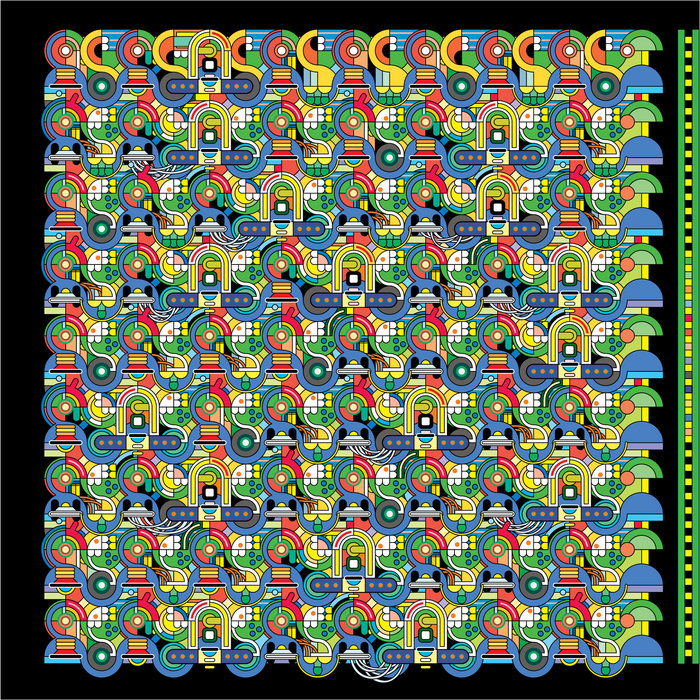
Vertebrae / Forgotten Places feat. Kathrin deBoer – Max Cooper
this blog is GROOVY – check out great Soul, Funk, Jazz, Hip Hop, Bass, Breaks , Reggae, House n many more TUNES
Alternative electronic music—just saying it makes you want to bob your head and sway your hips a little, right? This genre is like that funky cousin who shows up at the family reunion with their own playlist. It’s a blend of creativity, rebellion, and innovation that kicked off in the late 20th century and has since made waves all over the globe. So grab your headphones as we take a groovy walk through the history of this electrifying sound!
The roots of alternative electronic music can be traced back to the punk rock scene in the 1970s. Bands looking for fresh sounds started experimenting with synthesizers and drum machines. Punk’s raw energy collided with electronics to give birth to something unique.
In this cosmic collision, bands like Kraftwerk came along with their robotic beats and catchy melodies, paving the way for what would later blossom into alternative electronic music. You could say they were kind of like the grandparents of today’s artists—though much cooler! They released tracks like “Autobahn” that took listeners on an auditory road trip across Germany.
By the ’80s, synth-pop struck its chord (pun intended!). Groups such as Depeche Mode, New Order, and The Human League made synth-heavy tunes irresistible. These acts combined pop sensibilities with futuristic sounds—a combo so good it was hard not to dance!
One funny tidbit about Depeche Mode: they initially considered calling themselves “Composition Of Sound.” Can you imagine if they had gone through life under a name that boring? Thank goodness someone suggested something catchier!
Fast forward into the ’90s—the rise of indie rock spiced things up even more. The likes of Radiohead started blending traditional guitars with experimental electronic elements in albums like OK Computer. Talk about pushing boundaries!
Then came artists such as Moby who played around with samples from all kinds of genres, making his album Play (1999) one big hit machine! He literally sampled his grandma’s collection (not really—but let’s just pretend). It was groundbreaking yet accessible; perfect for both chill-out sessions at home or dance parties.
As we moved into the early 2000s, along came electroclash—a subgenre that mixed punk aesthetics with techno vibes while giving nods to new wave influences. Artists like Peaches threw down edgy lyrics paired perfectly against pulsating beats—in essence redefining what it meant to be avant-garde.
And if you’re looking for quirky trivia: Peaches once performed in nothing but toilet paper rolls during her show at Coachella! Talk about being resourceful—and memorable!
With technology evolving faster than ever before, anyone could now create slick tunes right from their bedroom! Programs like Ableton Live empowered wannabe musicians everywhere—turning bedrooms into studios overnight.
Enter artists like Grimes, whose mix-up style fuses pop melodies and ethereal vocals wrapped around bold beats caught everyone’s attention everywhere! She reminded us that anyone can jump into producing without breaking bank…and she also brought cat memes along for company too!
It’s wild how many musicians actually have odd jobs while launching their careers—like Grimes working part-time as a barista while crafting hits—you know just incase she needed cash flow during tough creative times.
Into our current decade—with everyone stuck indoors jamming out playlists on loop—music saw another shift toward even more eclectic fusions: hip-hop rhythms meet glitchy electronica creating magnetic vibrations felt worldwide!
We’ve seen fresh faces emerge—from inventive duo ODESZA known for euphoric sounds carrying entire festival crowds away on cloud nine; or SOPHIE challenging norms by infusing gender fluidity within sonic art itself—it screams individuality loud enough now that’s contagious across socials too!
Let’s not forget legendary DJ/producer Diplo collaborating heavily within mainstream culture despite starting out underground—all thanks to mashups where he put unexpected tastes together previously unheard elsewhere before—the man knows how throwdown grooves that’ll get everybody moving regardless if you’re dressed sharp or rocking sweats at home still dancing away fiercely nonetheless!
So there you have it folks—a whirlwind tour through alternative electronic music from its genesis until present day delightfulness…and here we drop some fun facts worth sharing:
So plug those beats in tight—and keep dancing on ’til dawn breaks anew because one thing’s certain: alternative electronic isn’t going anywhere fast—it’ll evolve endlessly straight towards unexplored galaxies sending us soaring beyond existing realms full blast ahead instead…and doesn’t everybody love great surprises?!

Vertebrae / Forgotten Places feat. Kathrin deBoer – Max Cooper